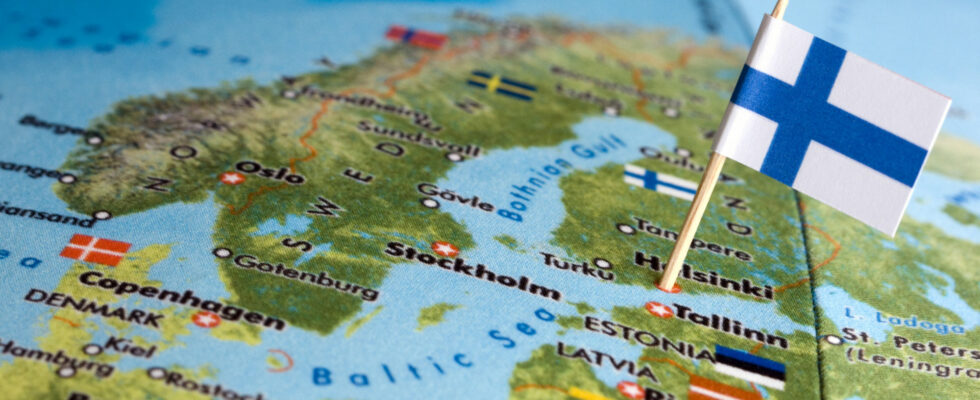Romain Rouillard / Photo credit: LEX VAN LIESHOUT / ANP / ANP VIA AFP
modified to
7:24 p.m., March 20, 2024
To live happily, let’s live in the north? The question is definitely likely to arise after the publication of the annual report, sponsored by the UN, on happiness in the world. Finland thus consolidates the first place it has held for seven years in a row. Denmark and Iceland complete the podium, at the foot of which we find Sweden. Norway, for its part, is in a very honorable seventh place. Far ahead of France, only 27th in this ranking, which happens to be behind Mexico, Uruguay and the United Arab Emirates.
The undivided domination of the Nordic countries in this ranking raises questions. The winters can be harsh, the days sometimes very short and the weather often gray. But beyond these climatic and meteorological considerations, these countries have a multitude of assets which make their presence at the top of this ranking perfectly logical and understandable.
High standard of living, absence of corruption
First of all, the establishment of this report takes into account different key factors: social support, income, health, freedom, generosity and absence of corruption. These are all areas in which the Nordic countries excel. According to the latest Corruption Perception Index (CPI) from Transparency International, the two least corrupt countries in the world are… Denmark and Finland, the two happiest countries on the planet.
“These are also countries with a high standard of living,” notes Gaël Brulé, professor of environmental health at the Geneva High School of Health and author of the book. The environmental cost of happiness. The annual United Nations report on the evolution of the Human Development Index (HDI) places Norway and Iceland in second and third place in a ranking dominated by Switzerland and where France only appears. in 28th position.
“We have, in these countries, welfare states which are generous,” also adds the expert. If the levels of taxation are generally high – Denmark, according to the Trading Economic site, is the country where the tax pressure is the highest in the world -, “these countries invest in the collective and redistribute these revenues in collective infrastructures , particularly in terms of transport, which are very developed”, notes Gaël Brulé.
Less insecurity
The Nordic countries can also point to “fairly contained income inequalities” and a “rather innovative education system”. “In Finland, we encourage more mistakes, we grade less, there is not this predominance of grading. And I, who did a master’s degree in Sweden, we had a ridiculous number of hours of lessons per week, we spent a lot more time reading, exploring and doing things independently,” says Gaël Brulé.
The feeling of insecurity is also much less widespread, even if Sweden faces more incivility than before. A local tradition even involves babies sleeping outside in their strollers, on the terrace of a restaurant for example, while parents sip a hot drink or enjoy a meal inside. A practice supposed to strengthen the child’s immune defenses, which would seem totally unrealizable in the middle of Paris.
@annieineventyrland♬ path of the wind ~ my neighbor totoro lofi – Closed on Sunday
“These are countries which have a reduced demographic, therefore easier to manage. There is not the political polarization that we can find in France, Great Britain or the United States”, finally underlines Gaël Brulé . Of the ten happiest countries in the world, only two (Netherlands and Australia) exceed the 10 million inhabitants mark.
